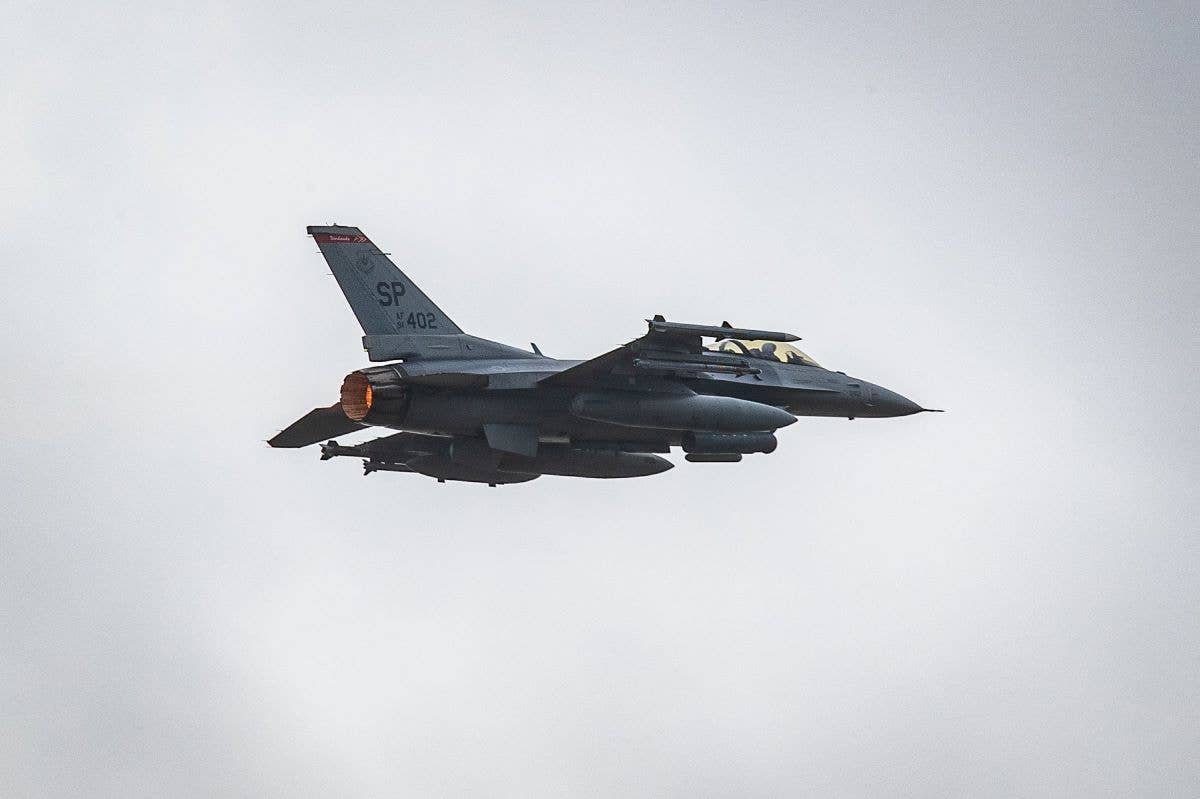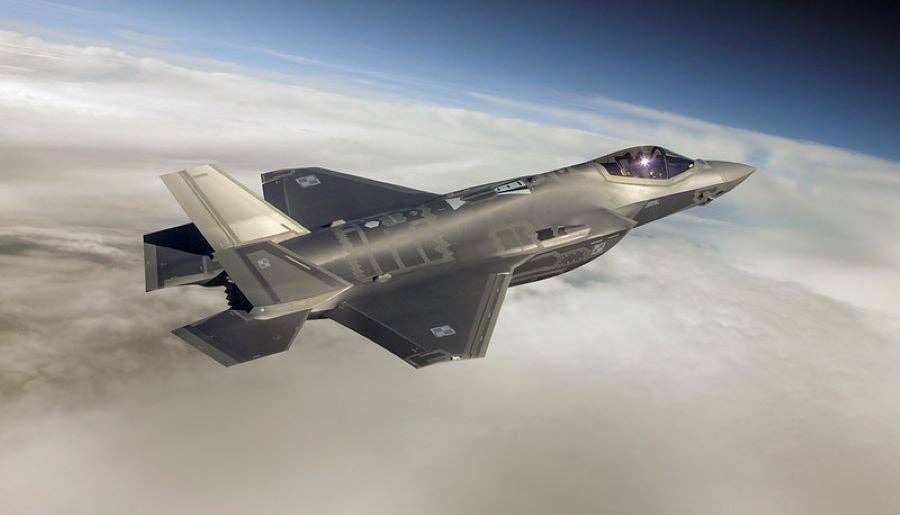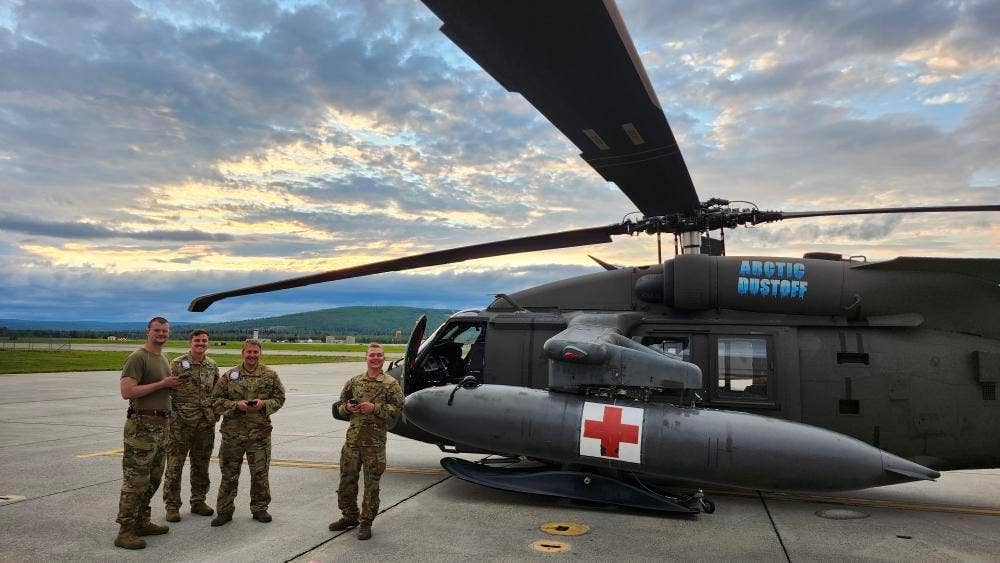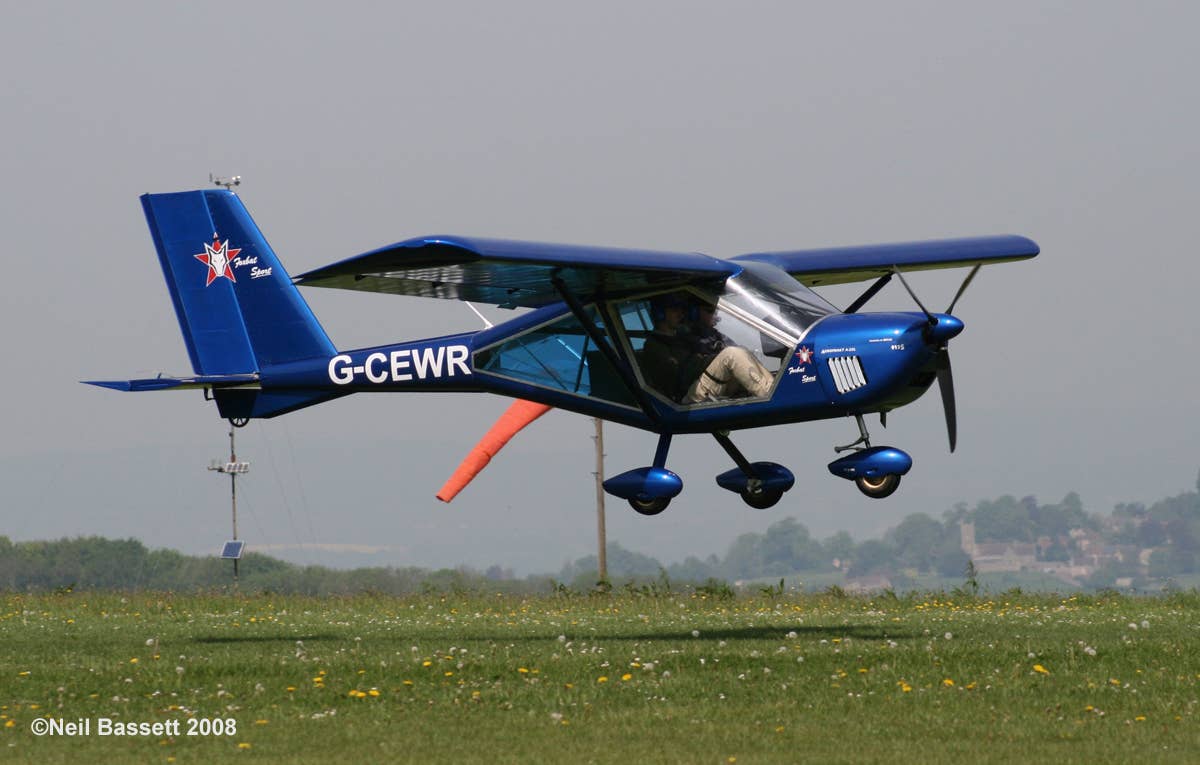US Air Force F-16s Deploy to Iceland for NATO Policing Mission
Four fighters and 120 Air Force personnel will operate out of Keflavik Air Base.

An F-16 Fighting Falcon aircraft assigned to the 480th Fighter Squadron departs Spangdahlem Air Base, Germany, to support NATO Air Surveillance and Policing at Keflavik International Airport (BIKF) in Iceland on October 22. [Courtesy: U.S. Air Force]
An Air Force flight squadron of four F-16 fighter jets and more than 100 personnel have deployed to Keflavik Air Base, Iceland, to conduct NATO policing.
"For the next [few] weeks, they will conduct regular air policing in Iceland on behalf of NATO," the Government of Iceland said. "The mission is carried out in cooperation with NATO Control and Command Centre in Uedem in Germany and the Command and Reporting Centre at Keflavik Air Base."
The deployment will conduct routine flight training and exercises, and last about three to four weeks, according to NATO. Airmen will also conduct aerial training with Icelandic Coast Guard personnel.
The fighters are assigned to the 480th Fighter Squadron, 52nd Fighter Wing based at Spangdahlem Air Base, Germany, and represent the first Air Force fighter deployment to Iceland in two years.
“The last time the 52nd came to Iceland was in the summer of 2019, and we are happy to be back to support our allies and partners in the High North with this critical air surveillance mission,” said U.S. Air Force Major Clifford Peterson, 480th Expeditionary Fighter Squadron detachment commander leading the F-16s at Keflavik during the NATO mission.
Iceland first began hosting NATO air policing in 2008.
Despite being a smaller nation, Iceland contributes meaningfully to the NATO alliance by hosting strategic NATO and allied assets and increasing the alliance's situational awareness in the North Atlantic, Admiral Rob Bauer, chair of the NATO Military Committee, said while attending the Arctic Circle Assembly in Iceland earlier this week.
“The increased competition and militarization in the Arctic region, especially by Russia and China, is concerning,” Bauer told the assembly. “The melting ice in the Arctic is creating new sea routes that would facilitate the movement of large vessels and shorten navigation times. We cannot be naive and ignore the potentially nefarious intentions of some actors in the region. We must remain vigilant and prepare for the unexpected."

Subscribe to Our Newsletter
Get the latest FLYING stories delivered directly to your inbox






